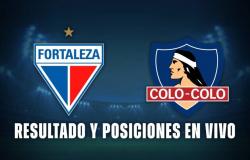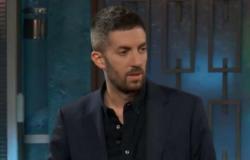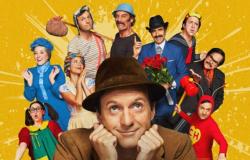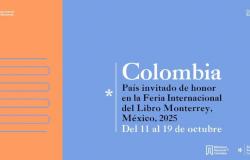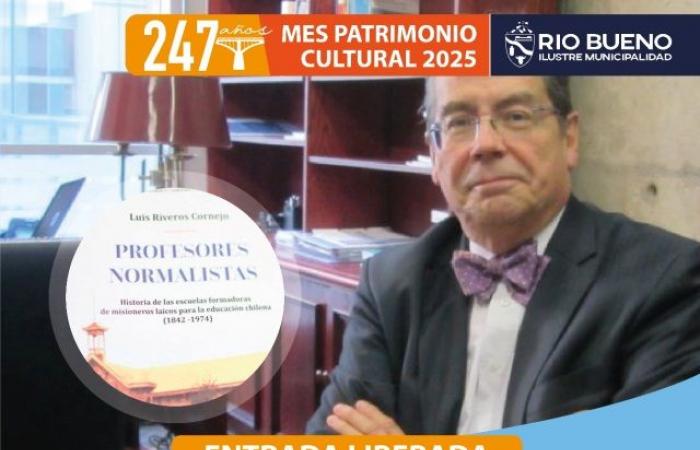
Next Wednesday, May 14, the former rector of the university of Chile, Luis Riveros, will launch in the commune of Río Bueno his most recent book, entitled “Normalist teachers”. The work is a deep research on the history, development and transcendental impact of normalist schools in Chile, highlighting the vocation and pedagogical quality of teachers trained under that eaves. The event will be held at 11:00 am at Armando Sandoval Rudolf cinema, where the academic will exhibit the keys to his research and his critical vision of the current teacher training system.
An exhaustive look at the history and legacy of the Normalist schools in Chile is the central proposal of “Normalist teachers”the new book of the outstanding economist and former rector of the University of Chile (2002-2006), Luis Riveros Cornejo. The work will be officially presented next Wednesday, May 14, at 11:00 in the morningin the emblematic cinema Armando Sandoval Rudolf from the commune of Río Bueno, a town where the author professes a special affection. “I have such good memories [de Río Bueno] Because years ago I visited the school and the high school, say, when I was a rector of the university and from there a very big affection for Río Bueno and its educators “Riveros commented on the choice of place.
In conversation with our environment, Riveros said that the book is the fruit of a job of approximately two yearsmotivated by his “own admiration for normalist teachers”of those who were disciple both in primary school and in high school. “I wrote this book, well, it took a long time, it is naturally a story of normalist schools, indicating all their transit, but above all indicating what characterized the training of normalist teachers, who flooded the country with talent, with commitment, with educational quality, which today is thrown out so much less”the academic said.
Research, for which had the collaboration of two assistants – A doctor in history and an advanced student of journalism -, reconstructs the trajectory of these institutions from their origins. According to Riveros, The need to train teachers became a priority For patriots after independence, before a colonial education “Primitive and so lacking teachers.” This impulse materialized in 1842, during the government of General Manuel Bulnes and under the management of his minister Manuel Montt, with the creation of the first normalist schools. “From then on the state made a great effort to invest in them, there were normalist schools in all the main cities of the country”Riveros said, highlighting that, although the number of graduates was insufficient for the growing demand, its impact was fundamental.
The book also addresses the “painful process” which culminated with the closure of these institutions. “There it was decided that the training of primary teachers had to end, I believe that this was a big mistake, and ultimately, isn’t it?, Then also for political reasons, the year 1974 ended the normalist schools”explained the former rector. This function was then transferred to universities, who today form basic education professors, but, according to Riveros, under a paradigm “Very different.”
Vocation versus score: central criticism
One of the most powerful plot axes in the book “Normalist teachers” And of Luis Riveros’ vision is the substantial difference in the Teacher selection and training criteria. “In the Normal School, he was selected by vocation. He who wanted and had that vocation to be a teacher, was a normalist student and was going to be surely a good teacher. Today he is another artist, today he is the one who has a good score, or acceptable score,”he sentenced. This difference, in his opinion, affects directly on the quality and commitment of education professionals, since many enter pedagogy through the score and then “They end up studying something else, or are dedicated to education in a very, I would say, very inadmissible, without this dedication, this will to teach.”
Riveros recalled that the normalist formation was financed by the State, including interned, which represented “A State commitment because the State put resources, as Manuel Montt himself said, isn’t it?, to bet 20 years in the future. Because with this the citizenship was formed, isn’t it?, that he was going to determine the course of the country.”
To enrich the narrative and the analysis, the author interviewed several outstanding normalist teachers. Among them, He mentioned Hugo Dolmetsch, former president of the Supreme Courtwho was a normalist teacher before studying law. These experiences contribute “A very human sense of normalist training”according to Riveros.
The former rector also compared the Chilean situation with that of other countries such as Mexico and Argentinawhere normalist schools “They still live a little, despite the change in the entire educational scenario, a little of this tradition, isn’t it? Select by vocation”. In addition, he highlighted the role of the normalist teacher as “A conversation agent with the family and with the children”a link that considers weakened in the current system, where “Families, little less, don’t matter”.
-The author expressed his satisfaction with the result of “Normalist teachers”which has had a good reception, especially among the graduates of normalist schools interested in this “Portrait of its history”.
To better understand
-
NORMAL SCHOOLS: Educational institutions specifically dedicated to the training of teachers for primary education. In Chile, they had a fundamental role in the expansion and quality of public education from the mid -nineteenth century until its definitive closure in 1974.
-
Normalist Professor: Teacher trained in a normal school, historically characterized by a strong vocation of service and a comprehensive pedagogical preparation focused on primary education.
-
Universidad de Chile (U. of Chile): One of the oldest and most prestigious higher education institutions in Chile and Latin America, of a state and public nature.
-
Score (in the Chilean educational context): It refers to the results obtained in standardized tests of admission to higher education, such as the University Selection Test (PSU) in the past, or the current test of access to higher education (PAES). These scores are a determining factor for entering universities.
-
Supreme Court: It is the highest court of the Judiciary in Chile. Its members are called ministers. Hugo Dolmetsch, mentioned in the interview, came to preside over this institution.
-
General Manuel Bulnes Prieto: Chilean military and politician, president of Chile between 1841 and 1851. During his mandate the first Normal School of Preceptors was founded.
-
Manuel Montt Torres: Chilean lawyer, and statesman. He was Minister of Public Instruction during the Bulnes government and subsequently president of Chile (1851-1861). Key figure in the impulse of education and the creation of normal schools.
Source Information: Christian Peschke

